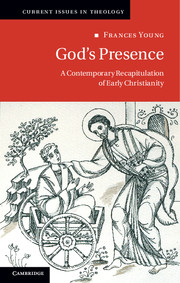Book contents
- Frontmatter
- Contents
- Preface
- Acknowledgements
- Abbreviations
- Introduction
- 1 From pondering scripture to the first principles of Christian theology
- 2 From cosmology to doxology: reading Genesis alongside Plato and Darwin
- 3 From creation to re-creation: nature and the naked ape
- 4 From image to likeness: incarnation and theōsis
- 5 From Adam and Eve to Mary and Christ: sin, redemption, atonement
- 6 From inspiration to sanctification: discerning the work of the Holy Spirit
- 7 From the church to Mary: towards a critical ecumenism
- 8 From dogma to theōria: the Christian God
- Epilogue
- Bibliography
- Index
- References
1 - From pondering scripture to the first principles of Christian theology
Published online by Cambridge University Press: 05 June 2014
- Frontmatter
- Contents
- Preface
- Acknowledgements
- Abbreviations
- Introduction
- 1 From pondering scripture to the first principles of Christian theology
- 2 From cosmology to doxology: reading Genesis alongside Plato and Darwin
- 3 From creation to re-creation: nature and the naked ape
- 4 From image to likeness: incarnation and theōsis
- 5 From Adam and Eve to Mary and Christ: sin, redemption, atonement
- 6 From inspiration to sanctification: discerning the work of the Holy Spirit
- 7 From the church to Mary: towards a critical ecumenism
- 8 From dogma to theōria: the Christian God
- Epilogue
- Bibliography
- Index
- References
Summary
Prelude
The child is gripped by stories in a children's Bible; the teenager puts the book on the same shelf as Grimm's Fairy Tales.
The archaeologist explores ancient sites, while the expert deciphers inscriptions in ancient scripts, construes unearthed texts in ancient languages and notes telling parallels to the biblical literature.
The student learns Greek and Hebrew, and encounters a world distant in time, geography, language and culture; the scholar analyses style, notes aporiai in the text, probes questions about origin and redaction, date and provenance, authenticity and historicity.
The apologist struggles with scientific and moral challenges to the Bible’s wisdom and veracity; the fundamentalist reverses the priorities, asserting the Bible’s authority over against human ideas.
The theologian seeks to make sense of God and the universe, of human nature and human life, of history and human behaviour, in the light of contemporary knowledge about the way things are, as well as the Bible and the traditions of Christian doctrine.
The simple believer memorizes key words to guide action and shape prayer; the preacher picks up the lectionary, seeking to relate the texts to liturgy and life . . .
- Type
- Chapter
- Information
- God's PresenceA Contemporary Recapitulation of Early Christianity, pp. 7 - 43Publisher: Cambridge University PressPrint publication year: 2013



